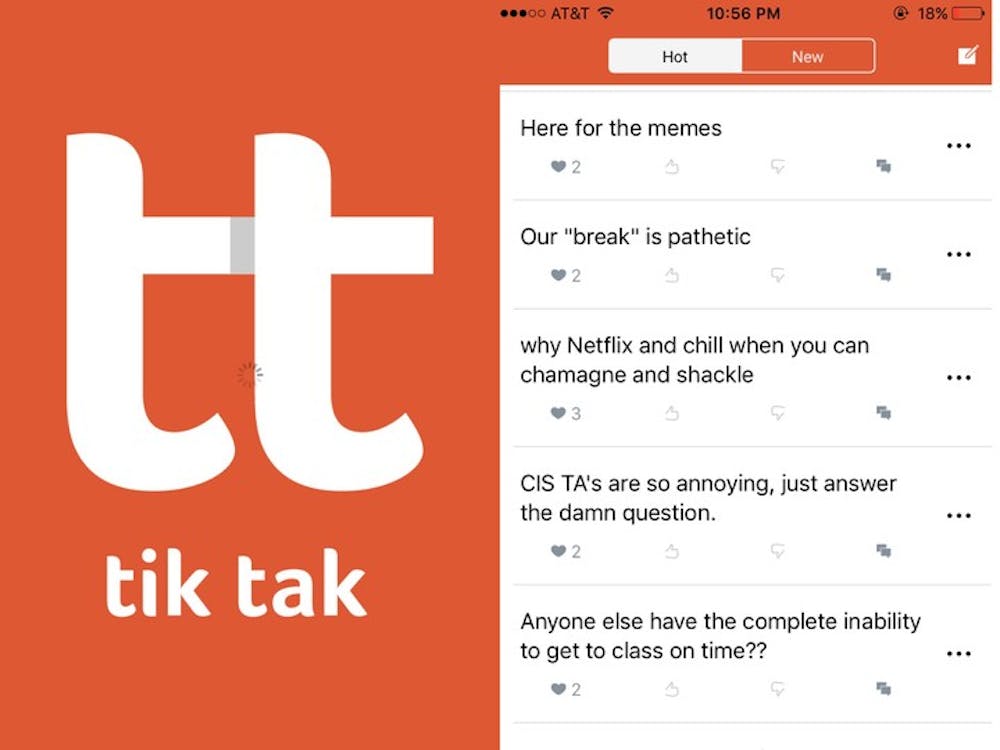
Penn’s student body now has a new mode of communication at its disposal with the introduction of the anonymous messaging application Tik Tak.
Created by Engineering sophomore Colby Cox and Wharton sophomore Amanda Zhu, who is a Daily Pennsylvanian Analytics staffer, the app closely resembles the form and function of Yik Yak, which went out of business earlier this year. Like Yik Yak, Tik Tak users can write anonymous posts that will be seen by other users nearby, Zhu said. Users can also vote posts up or down or leave comments on them.
Cox said he sees potential for the app to become a less “superficial” and “more accessible” way to expand the content currently posted on Penn’s Facebook meme group.
“We are not trying for perfect uniqueness,” Cox said. Instead, he said they hope to “provide a healthy community for people so they don’t have to worry about dealing with the [problematic] content that Yik Yak had.”
Yik Yak was no stranger to controversy during its peak of popularity; the platform regularly drew criticism for the prevalence of discriminatory and hurtful posts. Several universities, including Colgate University and Clemson University, considered banning Yik Yak in light of student body complaints.
In May, former students of the University of Mary Washington filed a federal complaint accusing the school of failing to protect them from threats of physical and sexual violence made on Yik Yak.
Tik Tak’s creators said they hope to address this issue by allowing users to flag posts that they find offensive and block the offenders from their feed. Yik Yak also included a feature where users could flag inappropriate or offensive posts.
Cox said Tik Tak will hold users accountable by requiring them to sign in with a phone number, making it easier to identify users who abuse the platform.
Wharton freshman Jake Milner, whose high school banned the app during his freshman year because students used it to bully and harass other students, said the anonymity of platforms like Yik Yak can often be problematic.
“People will say just about anything if they don’t have to take responsibility for it,” he said.
Cox and Zhu disagreed, adding that the app fills a void in the online communications market “for anonymous platforms that can be curated in a responsible way.”
The Daily Pennsylvanian is an independent, student-run newspaper. Please consider making a donation to support the coverage that shapes the University. Your generosity ensures a future of strong journalism at Penn.
Donate







